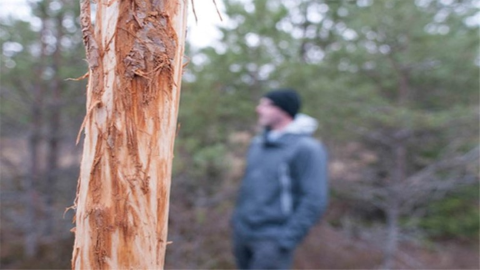Forest damage

Skogforsk is conducting active research into grazing damage caused by wildlife, and are developing management methods to reduce its impact.
Knowledge about harmful fungi and insects is particularly vital in view of the possible consequences of climate change. Skogforsk is providing the forestry sector with practical knowledge about harmful fungi and insects, and is developing measures to prevent attacks, primarily in thicket-stage and young forests.
The pine weevil costs Swedish forestry hundreds of millions of SEK every year. Skogforsk is developing management methods to minimise the effects of damage.
The shortage of genetically improved seeds necessitates large harvests from plantations. One of the threats to, particularly, the production of spruce seeds is insects. Skogforsk is developing profitable methods for preventing insect damage in seed nurseries.
Skogforsk is also monitoring and studying the spread of infection by rust fungus in northern Sweden. The objective is to develop more resistant plant materials.
The very aggressive ash dieback is now prevalent throughout the range of the ash, so Skogforsk is working to improve genetic breeding of ash in Sweden to increase resistance. Highly-resistant ash strains are also being stored to ensure genetic preservation.




